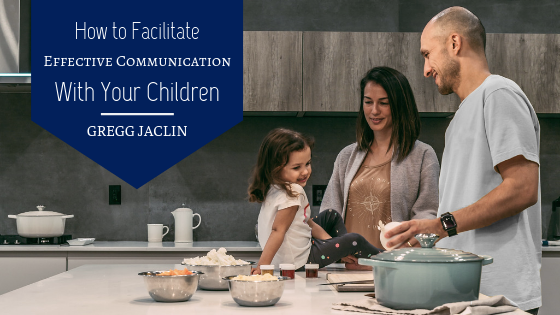As a parent, it’s important to be able to communicate with your children. This is often easier said than done. Try making use of the following suggestions to help you get the ball rolling and to ensure you’re getting the most out of your conversations.
Start By Becoming a Better Listener
Before you work on getting your young children to open up to you, it’s important to make sure you’re listening. It’s easy to zone out as your children begin to ramble, but these tips can help you avoid missing something important.
Ask Questions – By asking for more details, you show your child that you value what they’re saying. Don’t be afraid to ask for clarification on topics you don’t understand.
Watch Body Language – Looking for physical cues can give you a deeper understanding of your child’s experiences. Sometimes, body language can tell you more than words.
Reinforce Your Listening Skills – You can best do this by keeping eye contact with your child as he or she is speaking. As you ask a question, repeat back the phrases your child has said so they will know you were paying attention.
Tips for Getting Your Kids to Open Up
Now that you’re ready to listen, you just have to get your kids talking. There a number of effective conversation starters that will help you achieve this goal, but below are a few ideas to consider.
Best and Worst – Ask each of your children to share the best things that happened during the day and their worst experiences of the day. Don’t be afraid to reciprocate. Highlighting both positive and negative experiences can show your children that you care about them and their lives.
Meal Ideas – Ask your children about their favorite meals. If it’s a two-parent household, ask your children for the best meals that each parent cooks. Take these responses and you can plan meal schedules that appeal to your children and give your family something to look forward to.
Disliked Foods – Ask your children for three foods they will never eat. If it is something they have never tried or only tried once, you can try to encourage them to give it another chance. If they are adamant about their repulsion, simply try to find alternatives to make meals more enjoyable.
Fears – Ask your children about their biggest worries. Talking about their biggest concerns may help you allay them.
Favorite Books and Movies – Ask your children to share the best books they have read. Also, ask about their favorite movies. This can lead to deeper conversations and it may help you discover new ideas for entertaining your children.
Implementing these suggestions can help you communicate more efficiently with your children. These tips may even give you more ideas on how to keep the lines of communication open. There’s no reason you can’t be creative in looking for ways to get your children to be more open and expressive.

